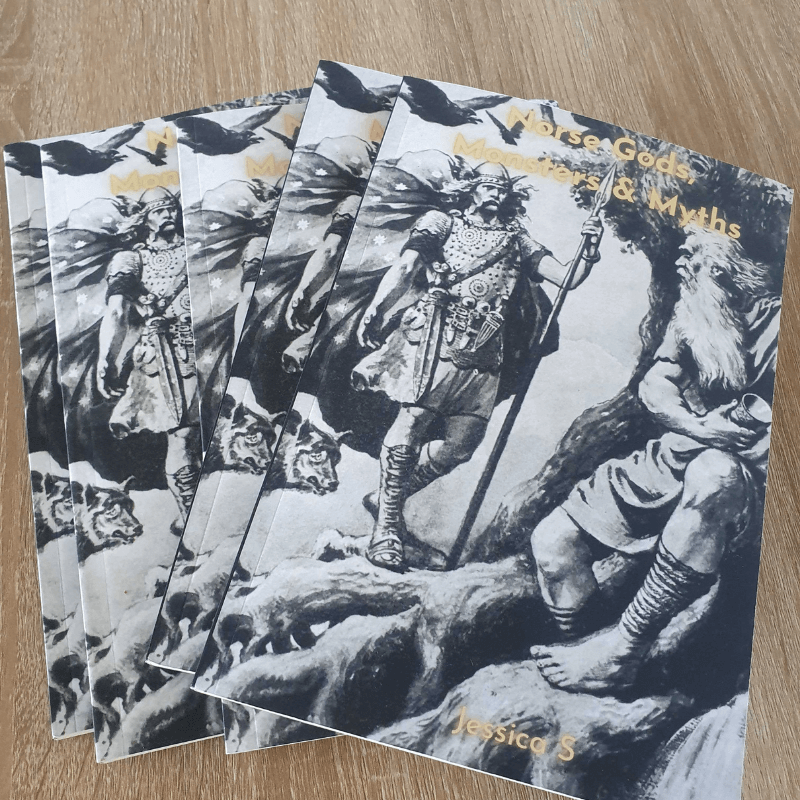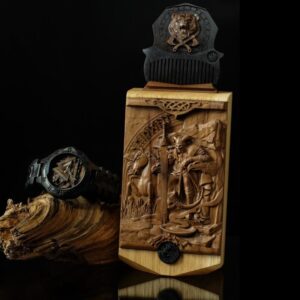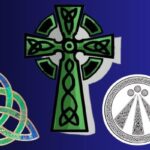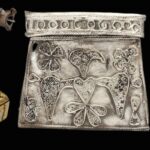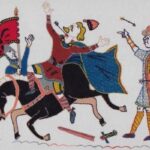When the Vikings landed on English shores they didn’t just take away slaves and previous goods to line their own pockets, they left quite a lot behind.
Laying down roots as settlers from the mid-9th century, they had a pretty big influence on local culture and society.
Let’s look at some of the ways that the Old Norse language has influenced modern English.
Three Phases of Viking Contact
Viking activity in England can be divided into three distinct phases.
Their potential to influence local language and customs was different in each phase.
The first phase was from the end of the 8th century to the middle of the 9th century and was when the Vikings were raiding English settlements on a more-or-less “hit-and-run” basis.
They took what they wanted and mostly left terror in their wake. The erratic nature of these attacks probably allowed for little linguistic contact.
The English would mainly have been exposed to Viking words related to fighting and treaties.
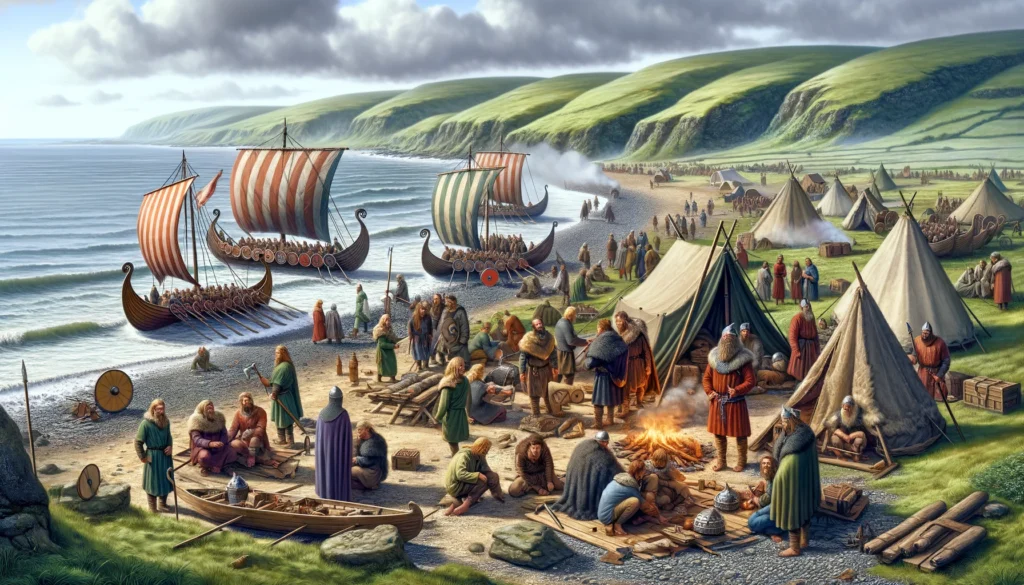
The second phase begins in the middle of the 9th century when the Vikings started to winter in England.
At this time they were thinking about conquest and settlement, and not just raiding.
This is when the Great Heathen Army took control of East Anglia and York, and tried to conquer Wessex.
This led to the signing of treaties and the creation of areas where the Vikings could settle and govern themselves according to “Danelaw”.
This period allowed for greater linguistic exchange.
For example, the treaty between the English King Alfred and the Viking Guthrum in 878, is written in Old English but refers to a mork, a Norse monetary unit, meaning eight ounces.
The fairly continuous arrival of settlers, traders, and fighters speaking Old Norse would have had a huge impact on the locals in the areas where they settled.
The third phase was more “empire building” than piecemeal settlement. Starting around the year 1000, the Vikings aspired to claiming royal power in England and extracting tribute, known as Danegeld, from the locals.
Between 1016 and 1035, England became part of Cnut the Great’s mighty Scandinavian empire. But this phase ended with the death of Cnut’s successor in 1042, and then the Norman conquest in 1066.
The imperial conquest of this period would have brought Old Norse speakers to parts of England where they were not previously known.
Extent of Norse Linguistic Influence

The Norman Conquest of 1066 had a huge influence as French became the language of the court.
It is estimated that approximately 10,000 words were imported from French during the Middle English period, compared to around 2,000 Old Norse words found in surviving medieval English texts.
But the Norse influence was still significant, since it was not limited to “technical” terms.
The import of technical terms is seen in modern languages that often import English words for new technology.
The Old Norse words that made their way into the English vocabulary were more everyday words. Some examples include skirt, window, ugly, ill, happy, scare, bag, and die.
Even some Old Norse grammatical terms were borrowed, such as the third person plural pronouns they, them, and their.
It is quite uncommon to import these kinds of grammatical terms between languages, but it was probably made possible by the fact that both Old English and Old Norse were Germanic languages.
It may even be that the two languages were mutually intelligible if everyone was speaking slowly and using visual aids.
The similarities between the two languages also means that it is not always easy to identify Old Norse influence.
The evidence is sometimes clear. For example, any word that uses sk is probably Norse in origin, like sky, skull, and skin, since sk was not used in Old English.
But in other cases, the Old English and Old Norse terms are so similar, it is hard to identify the origin of the word.
It is worth noting that while the Vikings used the runic alphabet Younger Futhark, from around 600, Old English was written using the Roman alphabet.
Viking Place Names in England
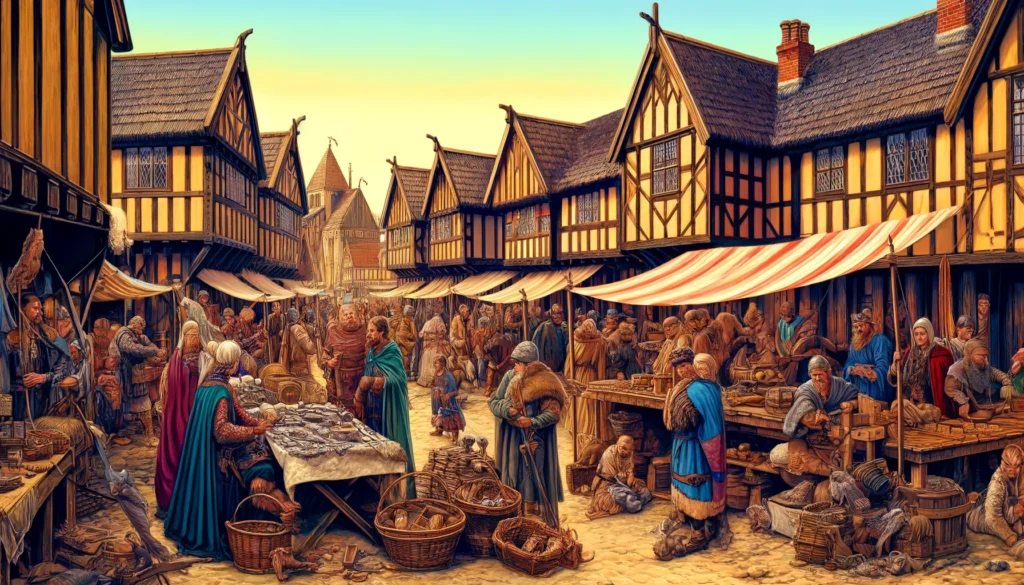
One of the easiest places to identify Viking influence on the English language is in place names, many of which were coined by Viking settlers and have just stuck.
In England, there are many places that end with the suffix “by”, such as Selby, Whitby, and Grimsby.
By means farm in Old Norse, so Grimsby is the farm of Grimr, a Viking name. In Yorkshire, the region surrounding the Viking settlement at York, there are about 210 “by” suffix place names.
Another Viking suffix used in place names was “thorpe”, which means village.
Again, these survive throughout England, but especially in areas such as York, where you will find Bishopthorpe, Copmanthorpe, Langthorpe, and Shiptonthorpe.
There are also the suffixes “hulme” and “holme”, from holmr, meaning raised ground on a marsh, the “ness” suffix, meaning a cape, and the “kirk” suffix, from the Old Norse kirkja, meaning church.
Pronouns
We’ve already mentioned that Old English adopted the Old Norse third person pronouns they, them, and their, but why ?
Old English did have the third person pronoun hem. But they seem to have abandoned it in favor of the Viking word because hem was too similar to him.
Verbs
Several verbs also made their way from Old Norse to Old English. These include “to take”, “to crawl”, “to guess”, and “to trust”.
But perhaps the most important import was the common verb “to be”.
In Old Norse, this was er, making the modern phrase “they are” a complete Old Nore import.
Words for the Battlefield
Since the Vikings initially arrived in England as raiders and invaders and were known for their warlike ways and warrior skills, it is no surprise that several words related to fighting and warfare were incorporated into English from Old Norse.
These include slaughter, ransack, club, and knife.
The word berserk is also of Viking origin. In Old Norse it referred to a order of warriors who communed with the spirit of the bear before going into battle to take on its strength and ferocity.
Many people believed that the Berserker warriors could not be killed in this state, but also that they fought like wild beasts, gnawing on their own shields to contain their battlelust.
In English, the word berserk came to mean uncontrolled and reckless.
Other Interesting Acquisitions

What are some other interesting acquisitions that English made from the Old Norse tongue?
The adjective ugly comes from the Old Norse word uggligr, meaning fearful or dreadful. This suggests that ugliness should inspire fear rather than disgust.
The noun gift is derived from the Old Norse word gift and reflects the importance of gift-giving in Viking culture. Leaders often gave gifts to their warriors, for example arm rings, as a way of sharing wealth and securing loyalty.
The word guest is also derived from the Old Norse gestr.
In Norse society, it was essential to treat guests well.
The English term husband is derived from the Old Norse term husbondi, which means the male head of the house.
In contrast, wife comes from the Old English word wif.
This might be a reflection of the fact that it was mostly Viking men settling in England, taking local wives.
The Old English word niman, meaning “to take”, was replaced by the Old Norse word derived from taka.
This may reflect the view that the Vikings came into England and took what they wanted.
The Old English word was used until about 1600 as a slang word for stealing.
The word sky comes from the Old Norse word sky, which actually meant cloud. Meanwhile, in Old English, cloud meant rock until the meaning was replaced with the Norse one.
The Vikings believed that Odin created the sky by hanging the skull of the murdered giant Ymir over the world. He used the giant’s brains to create the clouds.
Surnames
Many names used in England today have Viking origins.
This starts with all names ending in sen or son, which followed the Viking custom of naming someone “son of”.
For example, Leif Erikson, is literally Leif son of Erik. So Anderson, Johnson, Rogerson, and any other “son” may have Viking roots.
But these aren’t the only ones.
The last name Allgood seems to have been imported by the Danes as a variation of Algut, which was not otherwise known in England.
Collings is another imported Norse name, which meant swarthy or dark. Osborne is derived from the Old Norse name Asbjorn, so ass, “god”, and bjorn, “bear”.
Final Thoughts
Language is incredibly important because it frames how we think and how we communicate with others.
Therefore, when two different groups of people speaking different languages come together and look for ways to connect, where their language crosses over and borrows from each other can reveal quite a bit about the relationship between people.
Viking warriors came as fighters and then became husbands as they took English wives.
They imported many ideas about hospitality and gift-giving, and made new settlements that received new names.


